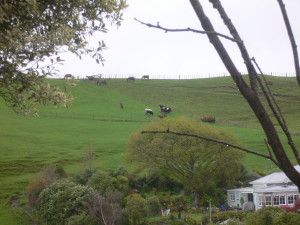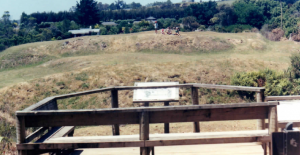Native Peoples

The first settlers to New Zealand were Māori people, thought to have originally migrated here from Eastern Polynesia. When Māori first arrived is uncertain. Archaeologist Janet Davidson suggests around 800AD. This is now the generally accepted date of first arrival, though debate continues. For many Māori, the date of first arrival is a lot earlier, according to whakapapa (genealogy).
Much later, from the 1790s, Europeans began to arrive in New Zealand. Most early Pākehā were transitory visitors, plying their whaling or sealing trades around New Zealand’s extensive coastline. From about the 1830s, however, early Pākehā began to show an interest in acquiring land and seeking permanence as ‘New Zealanders’. Strangely enough, though, the term ‘New Zealander’ was applied by new settlers to Māori until about the 1870s.
Contest for Land
Prior to the arrival of new settlers from Europe, Māori possessed distinct patterns of land ownership with ‘rules’ and principles guiding iwi (the tribes) as to how land was to be treated, valued and, above all else, protected.
The arrival of Europeans changed all this, with Māori concepts of ownership and land use coming under immediate challenge. This was because Māori and Pākehā saw land quite differently.
Māori Views on Land
For Māori, the land was owned by everyone (communally). Land could be gifted but could not be traded away permanently for goods or sums of money (ie sold). Land was the source, too, of history, identity and mana, or prowess. Land bore the names of ancestors; stories of ancient times were personified in land forms.
And land, of course, was the source of sustenance – food, water, clothing materials, thatching for houses, weapons and ornaments.
Pākehā Views on Land
For Pākehā, used to English law, land was owned individually, by one person (or by one ‘legal person’ being (say) a family). Land could also be freely exchanged; it therefore possessed value as a commodity for sale and purchase. Land was to be economically improved and rendered viable as a physical asset; land ‘lying idle’ was seen as wasteful.
Land was the source of one’s social and political position and was also the source of wealth. Owning land as an individual also conferred the vote, if you were male and over 21 years old.
You can see here how marked the differences were, between incoming settlers and Māori. Much of our shared New Zealand history thereafter revolved around this sharp difference, which ultimately led to disagreement, conflict and war.
Māori Seek to Retain Land and Values
Throughout the war period that followed, Māori fought hard both to retain their lands, but also to hold fast to the customary meanings and values inherent in those lands. Though the world was changing rapidly through the onset of colonisation, Māori held fast (and devised strategies) to hold fast to customary possessions and meanings.
If you want to read further about how Māori achieved this – holding fast to their customary possessions and values in times of duress – you can read Danny’s chapter ‘Bound to the Land’ which was published in the Environmental Histories of New Zealand (Oxford, 2002) – to read the chapter, click here # Bound to the Land.



